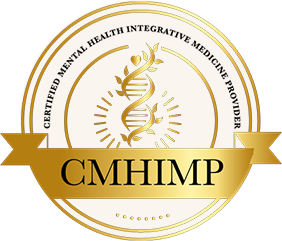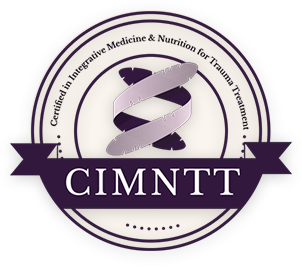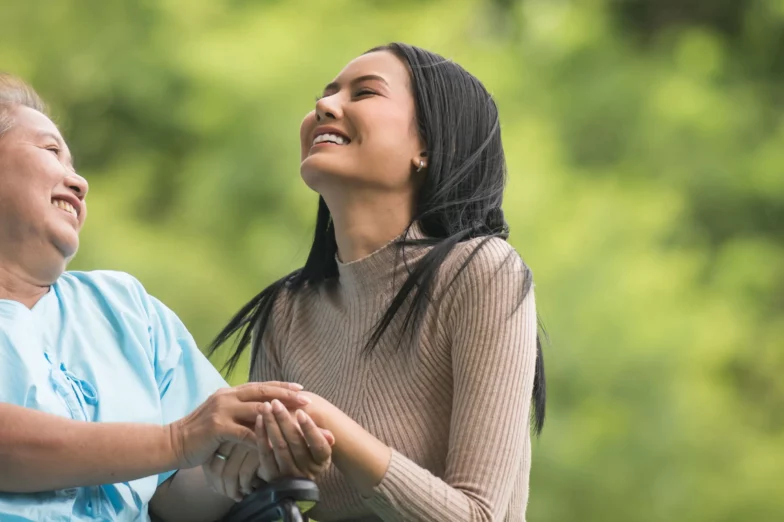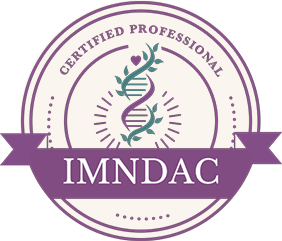Certification
The Role of Traditional Healing Systems in Mental Health and Trauma Care: A Global Review of Evidence and Integration Models
Traditional healing systems are recognized for their ability to support mental health and help people recover from trauma. Rooted in nature, kinship, spirituality, meaning-making, and collective change, integrating these approaches into mental health care offers a counterpoint to models that view mental distress only through an individual lens.
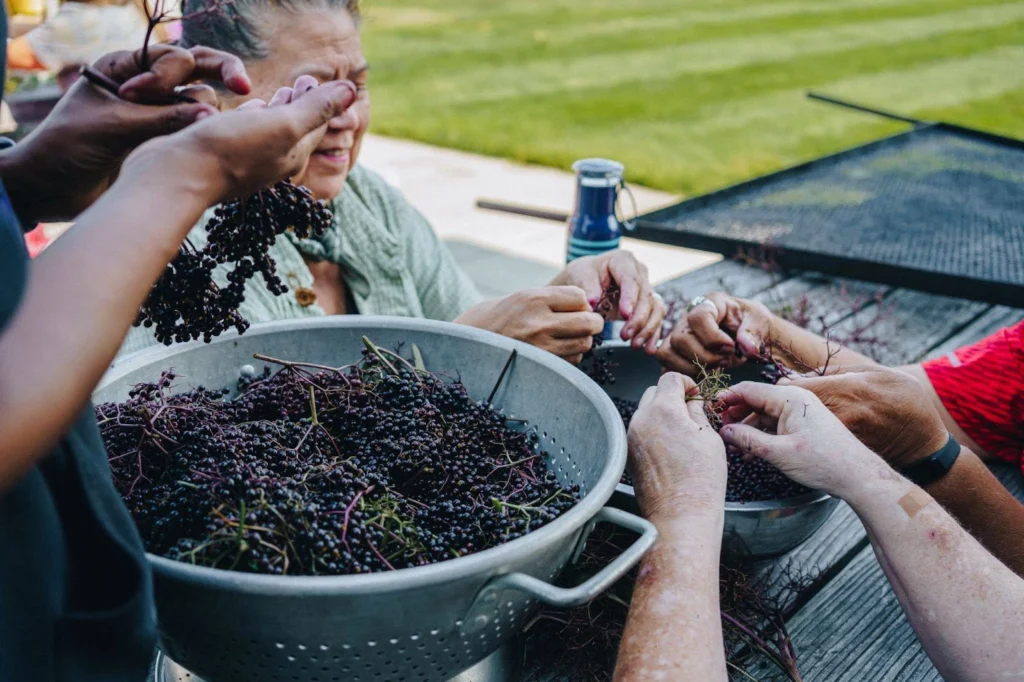
Photo: Alma Méndez
I have spent a significant part of my career living and working among indigenous communities in Mexico, learning and providing methods of care that sustain traditional health, wellness, and medical traditions. That’s why, at the heart of my work—and the founding of my nonprofit, the Center for Traditional Medicine—is a deep belief in the power of food, nature, culture, and community to heal trauma.
Modern science is starting to recognize what Indigenous and traditional practitioners have long known: that health is relational and contextual, and that nutrition, kinship, spirituality, and community are central to mental well-being. That’s why we need to continue developing trauma-informed, culturally rooted resources that integrate Indigenous food systems, plant-based remedies, and holistic care as essential components of healing.
Let’s review together five recent studies that explore how traditional healing systems are being integrated and studied in mental health and trauma care around the world:
The first study is a systematic review from West Africa that paints a realistic but hopeful picture of integration between traditional and conventional mental healthcare. While full-scale integration remains rare, the authors point out that there are emerging successful informal collaborations that lay important groundwork for more structured partnerships.
The second study reviewed traditional healing practices across sub-Saharan Africa and their role in supporting mental health. It found that herbal and spiritual methods remain widely used, and when integrated with biomedical treatment, they often lead to better outcomes. This review also flags some troubling practices, highlighting the need for ethical, culturally informed standards alongside collaboration.
The third article presents the Gathering Our Medicine framework, developed by a Coast Salish practitioner in British Columbia. It showcases Indigenous values like kinship and community responsibility, and offers an approach to healing that moves away from colonial trauma frameworks and toward relational, culturally-rooted care.
The fourth study compared traditional healing systems across Canada, China, Singapore, and the U.S., highlighting their shared foundations such as communal ritual, spirituality, and deep connection to land and ancestry. The authors call for global mental health care to learn from these traditions in building more equitable and culturally grounded practices.
The fifth study reviewed randomized trials and qualitative research on the effectiveness of traditional healers in treating common mental disorders like depression and anxiety. It found promising results for spiritually based approaches, especially when trust, cultural understanding, and shared worldview were central to the therapeutic relationship.
Tags: traditional healing, Indigenous knowledge, mental health, trauma, spiritual practices, decolonial psychology, kinship, cultural frameworks, integration of care, community healing, traditional medicine
Interested in Learning More?
- Course(s): Mental Health Disorders
- Course(s): PTSD, Complex Trauma, and Traumatic Brain Injury
- Book(s): Rhythms of Recovery: Integrative Medicine for PTSD and Complex Trauma
- Book(s): The Brainbow Blueprint: A Clinical Guide to Integrative Medicine and Nutrition for Mental Well-Being
Research Glossary
Research has its own vocabulary. To help you decipher research, I created a Glossary to ease the way. You may access it here: Research Glossary
Referenced Research Publications
Community mental health journal
2024, April 15
DOI: 10.1007/s10597-024-01263-w
Factors Influencing the Integration of Traditional Medicine and Mainstream Medicine in Mental Health Services in West Africa: A Systematic Review Using Narrative Synthesis
Abstract
This study explored the enablers and obstacles to the integration of traditional medicine and mainstream medicine in mental health services in West Africa. This study is a systematic review conducted in accordance with the relevant parts of the Preferred Reporting Items for Systematic reviews and Meta-analyses. Keywords searches were done in databases, and other reference lists were also searched. The Rainbow model of integrated care and a thematic analysis framework were used to account for the factors influencing the integration of traditional medicine and mainstream medicine in mental health services in West Africa. A total of 12 studies met the eligibility criteria after the evaluation of 6413 articles from databases and reference lists. The themes of: policy and implementation; different conceptualisation of mental health/referrals; trust issues, and education and training, were enablers or obstacles of integration depending on how they worked to facilitate or hinder integration. There was an indication of little integration of TM and MM at the macro, meso and micro levels in mental health services in West Africa. Though the study does cover all the West African states evenly, it is recommended that policy-makers and stakeholders interested in integration should ensure integration activities, especially policies, cut across all the levels of the rainbow model of integrated care and are planned and aligned at the macro, meso and micro levels instead of using ad hoc measures, informal initiatives or placing TM services in MM mental health services, which do not amount to integration.
Reference
Soori, B. I. P., Regmi, K., & Pappas, Y. (2024). Factors Influencing the Integration of Traditional Medicine and Mainstream Medicine in Mental Health Services in West Africa: A Systematic Review Using Narrative Synthesis. Community mental health journal, 60(6), 1117–1130. https://doi.org/10.1007/s10597-024-01263-w
BMJ Open
2024, September 25
DOI: 10.1136/bmjopen-2023-083004
Traditional healing practices, factors influencing to access the practices and its complementary effect on mental health in sub-Saharan Africa: a systematic review
Abstract
Objectives: In areas with limited and unaffordable biomedical mental health services, such as sub-Saharan Africa (SSA), traditional healers are an incredibly well-used source of mental healthcare. This systematic review synthesises the available evidence on traditional healing practices, factors to access it and its effectiveness in improving people's mental health in SSA.
Design: Systematic review using the Preferred Reporting Items for Systematic Reviews and Meta-Analyses approach.
Data sources: PubMed, MEDLINE, CINAHL and Scopus studies published before 1 December 2022.
Eligibility criteria: Qualitative and quantitative studies reported traditional healing practices to treat mental health problems in SSA countries published in English before 1 December 2022.
Data extraction and synthesis: Data were extracted using Covidence software, thematically analysed and reported using tables and narrative reports. The methodological quality of the included papers was evaluated using Joanna Briggs Institute quality appraisal tools.
Results: In total, 51 studies were included for analysis. Traditional healing practices included faith-based (spiritual or religious) healing, diviner healing practices and herbal therapies as complementary to other traditional healing types. Objectively measured studies stated that people's mental health improved through collaborative care of traditional healing and biomedical care services. In addition, other subjectively measured studies revealed the effect of traditional healing in improving the mental health status of people. Human rights abuses occur as a result of some traditional practices, including physical abuse, chaining of the patient and restriction of food or fasting or starving patients. Individual, social, traditional healers, biomedical healthcare providers and health system-related factors were identified to accessing traditional healing services.
Conclusion: Although there is no conclusive, high-level evidence to support the effectiveness of traditional healing alone in improving mental health status. Moreover, the included studies in this review indicated that traditional healing and biomedical services collaborative care improve people's mental health.
Reference
Berhe, K. T., Gesesew, H. A., & Ward, P. R. (2024). Traditional healing practices, factors influencing to access the practices and its complementary effect on mental health in sub-Saharan Africa: a systematic review. BMJ open, 14(9), e083004. https://doi.org/10.1136/bmjopen-2023-083004
AlterNative: An International Journal of Indigenous Peoples
2023, May 02
DOI: 10.1177/11771801231168
Gathering our medicine: strengthening and healing kinship and community
Abstract
This article considers the terms culture and healing, critiques perpetuation of colonizing perspectives in conventional trauma-informed mental health approaches, and introduces Gathering Our Medicine, an innovative community framework created by Sḵwx̱wú7mesh (Squamish; Coast Salish Peoples Indigenous to the lands of Southern British Columbia, Canada) practitioner Denise Findlay in response to the need for decolonial approaches to mental health for Indigenous communities throughout British Columbia, Canada. The framework encourages re-imagining healing and mental health practices through values such as lateral kindness that draw from distinct traditional Indigenous philosophies, ontologies, and epistemologies. By revitalizing and centring distinctive traditional knowledges about actualization, transformation, and healing, the framework provides a role for allies that disrupts the impulse to deny culpability that Indigenous scholar Susan Dion calls the perfect stranger position. Findlay provides an alternative—the imperfect friend—drawing on kinship practices as effective indirect praxis for collective healing and well-being, transforming the distanced expert into engaged community member.
Reference
Findlay, D. (2023). Gathering our medicine: strengthening and healing kinship and community. AlterNative: An International Journal of Indigenous Peoples, 19(2), 356-365. https://doi.org/10.1177/11771801231168178
The American psychologist
January, 2025
DOI: 10.1037/amp0001386
Decolonizing Mental Health Practice Through Traditional Healing Frameworks: Insights From Canada, China, Singapore, and the United States
Abstract
Decolonial and liberation psychology aims to understand and address the social and epistemic injustices in our mental health systems, practices, and research agenda. To advance this goal, we advocate for deeper engagement with traditional healing systems practiced by various Indigenous Peoples and cultural groups around the world. In this article, we consider examples of Indigenous healing from Canada, China, Singapore, and the United States, to address a central question: What can we learn from these unique Indigenous healing traditions to inform mental health practices globally? Comparison shows that all these practices involve communal healing rituals grounded in spiritual, religious, and cultural knowledge systems related to embodied ways of knowing and that are embedded in social–ecological systems, including kinship, ancestral ties, and filial connections to the cosmology. To support further development of decolonial practice, it is crucial to attend to the complex interactions of cultural identity and sociocultural (relational, communal, political, and spiritual) factors underlying healing traditions in Indigenous communities.
Reference
Ting, R. S., Ansloos, J., Lee, B. O., Gone, J. P., & Kirmayer, L. J. (2025). Decolonizing mental health practice through traditional healing frameworks: Insights from Canada, China, Singapore, and the United States. The American psychologist, 80(4), 630–642. https://doi.org/10.1037/amp0001386
Transcultural Psychiatry
2024, September 24
DOI: 10.1177/136346152412730
Effectiveness, barriers, and facilitators of interventions delivered by traditional healers for the treatment of common mental disorders: A systematic review
Abstract
We investigated the effectiveness of interventions provided by traditional healers for common mental disorders (CMDs) together with associated barriers and facilitators. Electronic databases including MEDLINE, APA Psych Info, Allied and Complementary Medicine, Embase, CINAHL, Social Science Citation Index, and Scopus were searched from inception until October 2021. Randomised controlled trials (RCTs) assessing interventions by traditional healers for CMDs and qualitative and mixed-methods studies examining traditional healers and their attendees’ views about the treatment of CMDs by traditional healers were included. Cochrane Risk of Bias Assessment tool (RoB-1) and Critical Appraisal Skills Programme (CASP) were used for the quality assessment of studies. A meta-analysis and thematic synthesis were conducted. Sixteen RCTs (1,132 participants) and 17 qualitative or mixed-methods studies (380 participants) were included. Improvement in symptoms was greater for interventions by traditional healers compared to control groups for both depression and anxiety. Subgroup analyses indicated that only “spiritual passe” interventions showed improvement in depression and anxiety, and participants with co-morbid anxiety and physical conditions showed improvement in anxiety. Facilitators to engaging with interventions by traditional healers were shared faith-based worldview exhibited by traditional healers and their attendees and perceived effectiveness of traditional healing. Stigma and concealing mental illness were found to be barriers not only to formal healthcare but also to traditional healers’ services. Interventions by traditional healers such as “spiritual passe” are effective in improving CMDs. However, evidence is still limited due to the low quality of studies and lack of long-term evidence.
Reference
Bhatti, M. M., Siddiqi, N., Jennings, H., Afaq, S., Arsh, A., & Khan, B. A. (2024). Effectiveness, barriers, and facilitators of interventions delivered by traditional healers for the treatment of common mental disorders: A systematic review. Transcultural psychiatry, 61(6), 885–904. https://doi.org/10.1177/13634615241273001





